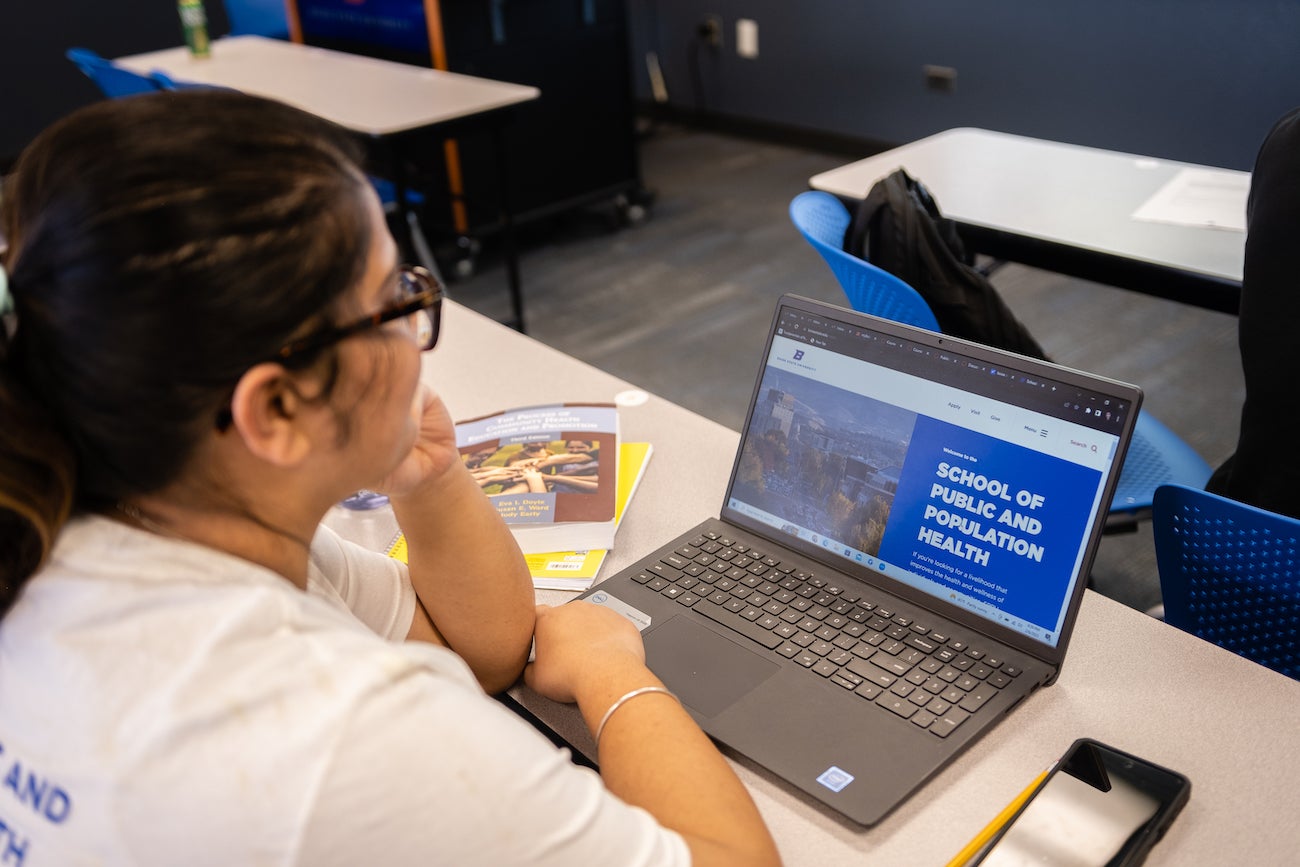
For the past three years as the worst global public health crisis in decades unfolded, faculty in the College of Health Sciences created a program to equip public health leaders for such challenges in the future. It now has the potential to be the next PhD program offered at Boise State, pending state approval.
The program in public and population health leadership was designed by Doug Myers, a professor in the School of Public and Population Health, and Mike Mann, the school’s interim divisional dean and an associate professor, along with a team of colleagues.
The PhD would be one of the two needed for the Boise State School of Public and Population Health to be considered for accreditation, but there’s much more at stake than just that.
Bridging theory, research and practice
The team envisions an approach that tilts neither theoretical nor administrative, filling the gap between researching a problem and moving effectively to solve it.
The School of Public and Population Health offers undergraduate and graduate public health degrees, yet this program is meant to prepare leaders in the public health field in a way that neither a more traditional PhD nor a doctorate in public health is doing.
“The idea is to create and train a new category of public health professional: the scientist leader,” Myers said. “It’s kind of a two-for-one.”
The program will appeal to those already working in the field of public health, so while it could be completed in three years, working professionals might take a five-year path to completion. Most classes are likely to be in person, in the afternoon and evening on the Boise State campus.
Participants would encounter a different academic environment than they might have expected. One that teaches and scientifically trains them to figure out a problem, build and manage a team, organize, ideate solutions, anticipate next steps and communicate clearly throughout. Dissertations are expected to be equally practical.
The program weaves together the theoretical foundation of public health, methodology and application rather than simply studying a problem. It’s also not just solving the problems created when active management and effective leadership aren’t in place.
Generating excitement nationally
As many involved in the pandemic response across the global public health community witnessed, some very important skills aren’t shared universally — which is largely why the proposal is currently being met with excitement and great interest. Many of the region’s significant players in the public health space recommend that the program be established. External reviewers are already telling the team that there may be far more interest than they might think.
A pair of nationally recognized public health experts who surveyed the program proposal and visited campus this fall were highly complimentary of the plan.
“Overall, we find that Boise State University, the community, the workforce, faculty, students and practice partners would be served well by the addition of this exceptional program,” the report read. “It has the potential to become a national and international model with the defined focus on leadership as a core foundation for the scientist leader and practitioner.”
The College of Health Sciences and Boise State student culture further improved the program’s chances.
“Current graduate students are thrilled to be a part of the School of Public and Population Health and articulated an extraordinary sense of belonging and worth, exceptional mentoring and professional development, and provided specific and concrete examples of supportive experiences with faculty members,” the report said.
The proposal for the program is expected to be reviewed by the state this spring, and with approval, the first cohort of students could begin work toward their doctorates in the fall of 2023.